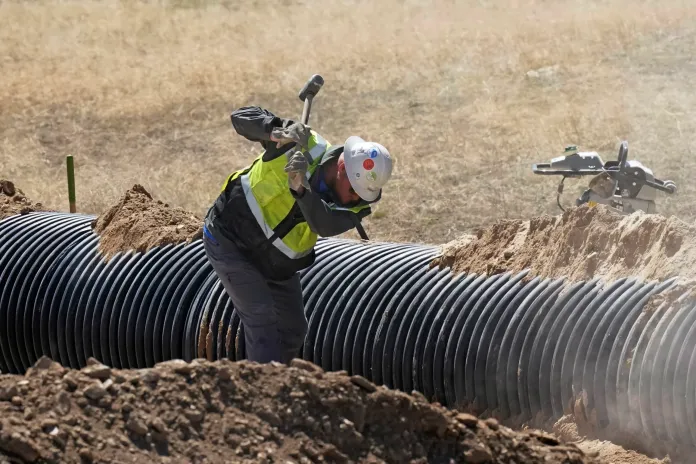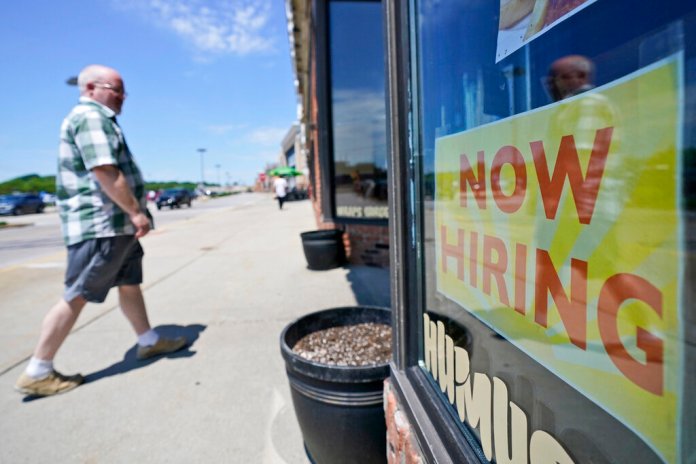Canada’s Freight Railroads Grind to Complete Stop – US to Feel Major Impact
A significant economic disruption is occurring in Canada and the U.S. due to a complete halt of major freight rail service following a contract dispute between Canadian railroads and their workers. Both Canadian National and CPKC railroads locked out employees after negotiations with the Teamsters Canada Rail Conference, which represents around 10,000 workers, failed to reach an agreement. This shutdown has halted all rail traffic in Canada and affected shipments crossing the U.S. border, despite continuation of operations within the U.S. and Mexico.
The U.S. Department of Transportation highlights that billions of dollars worth of goods transit via rail monthly between the two countries, and many business sectors depend heavily on this transportation. Amidst the crisis, the Canadian government is being urged to intervene, but Prime Minister Justin Trudeau has hesitated to enforce binding arbitration, fearing backlash from unions. Meanwhile, business leaders express frustration over the lack of government action, warning that the shutdown could lead to job losses and significant economic hardship.
Local commuters in major cities like Vancouver, Toronto, and Montreal have also been impacted, as their trains are unable to operate during the lockouts. Historically, such rail disruptions have been brief and infrequent, making this widespread stoppage particularly alarming for both businesses and commuters.
Businesses and consumers throughout Canada and the U.S. were in danger of suffering significant economic harm after Canada’s major freight railroads came to a full stop Thursday because of a contract dispute with their workers.
Canadian government officials met urgently to discuss the shutdown. Canadian National and CPKC railroads both locked out their employees after the 12:01 a.m. EDT deadline Thursday passed without new agreements with the Teamsters Canada Rail Conference, which represents about 10,000 engineers, conductors and dispatchers.
All rail traffic in Canada and all shipments crossing the U.S. border have stopped, although CPKC and CN’s trains will continue to operate in the U.S. and Mexico.
Billions of dollars of goods each month move between Canada and the U.S. via rail, according to the U.S. Department of Transportation. Many companies across all industries rely on railroads to deliver their raw materials and finished products, so without regular rail service they may have to cut back or even close.
Both railroads have said they would end the lockout if the union agreed to binding arbitration, while unions indicated that they were still at the bargaining table.
Business groups have urged the government to intervene, but Prime Minister Justin Trudeau has declined to force the parties into binding arbitration for fear of offending the Teamsters Canada Rail Conference and other unions.
Canadian Minister of Public Services and Procurement Jean-Yves Duclos urged both sides to resolve their differences.
They need to do their job to come to an agreement quickly,” he said at a news conference.
Canadian Labor Minister Steven MacKinnon had meetings scheduled “all day on this extremely important matter,” according to a statement from MacKinnon’s office.
Business leaders fumed over the lack of government intervention.
“When you completely shut down the coast-to-coast supply chain, nothing good can come from that,” said John Corey, president of the Freight Management Association of Canada. “This is infuriating. People are going to lose their jobs. There is going to be a real hardship to the economy.”
Most businesses will probably have enough supplies on hand and enough room to store their finished products to withstand a brief disruption. But ports and other railroads will quickly become clogged with stranded shipments that Canadian National and CPKC will not pick up.
For Union Pacific, one of the U.S. rails that regularly hands off shipments to and from the Canadians, the rail stoppage “means thousands of cars per day will not move across the border,” the company said in a statement Thursday.
“Everything from grain and fertilizer during the critical summer season, and lumber for building homes could be impacted,” the company said.
More than 30,000 commuters in Vancouver, Toronto and Montreal were the first to feel the pain of the lockouts. They had to scramble Thursday morning to find a new way to work because their commuter trains aren’t able to operate while CPKC is shut down.
Canada’s railroads have sometimes shut down briefly in the past during contract negotiations — most recently CPKC was offline for a couple days in March 2022 — but it is rare for both railroads to stop at the same time. The impact on businesses will be magnified because both CN and CPKC have stopped.
The Western Journal has reviewed this Associated Press story and may have altered it prior to publication to ensure that it meets our editorial standards.
" Conservative News Daily does not always share or support the views and opinions expressed here; they are just those of the writer."




